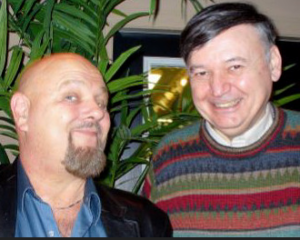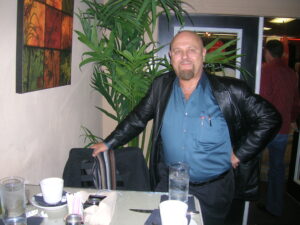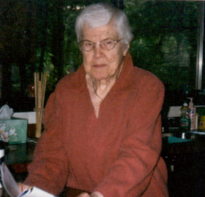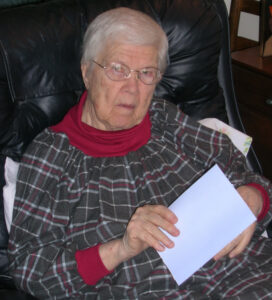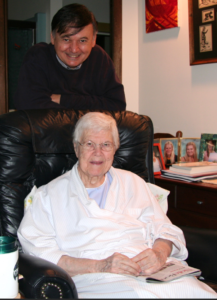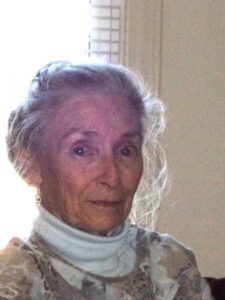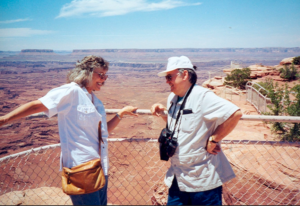Friday, April 26, 2024
Every time I write the date in an entry – or, not every time, but often enough – I am reminded of the months I spent wondering if the final entry would be any time soon. It seemed it must be – but never was. Well, someday.
Okay, guys, ready if you are. It is 4:35 a.m. (rounded as usual) and I have my very welcome coffee.
Consider your pleasure in writing in your accustomed journal book rather than the off-format one you endured for three months, and remember your thought about the philosophers.
Yes, I get it. I thought, yesterday, reading about Colin’s thought and life, that so many schools of philosophy were built upon totally inadequate models of human life. Incomplete, actually wrong, clearly demonstrated in years since how incomplete and wrong they were, and yet their influence persists. Tabula rasa, for instance. Clearly wrong. Sartre and so many existentialist thinkers making assumptions and perhaps not even seeing that they were assumptions rather than facts, and so concluding that man is a useless passion, that life is inherently meaningless, that everything is contingent. And the link you are making is, I think, an example of how many connections we make that have nothing to do with logic or thought. In this case, the physical familiarity of the journal book and pen, the pjs and robe, the early morning coffee and the surrounding world’s quiet, with perhaps the distant sound of cars or trucks on the highways outside. Such physical clues are missed, just as are more debatable ones as heredity, affinity, past-life memory, etc.
The reason we wanted you to write the book interpreting our words is that no one else will be able to do the job you could do. Others will be able to do what you cannot do, but they won’t be able to do what only the one on the inside of the process can do.
Maybe I already did it in The Cosmic Internet.
To a degree, you did. But you know more now than you did then.
Well, I don’t know what to do about it. It’s like “The Stone and the Stream” manuscript that I looked at yesterday, for the first time since ceasing work on it in October. I can see that it won’t do; there isn’t any point in finishing it. But I can’t see how to go ahead with a new version, nor how to fix what I have. We may have to settle for what is done.
We aren’t the ones concerned about it.
No, but you are the ones quietly nudging me, I think. Or maybe not, maybe the distinction was never more than relative. In any case, I enjoy the feeling of being back in contact with you. I had reconciled myself to having finished all this, but I prefer it. And I bought a six-pack of these journals, as a sort of act of faith,. I hope they get filled with substance.
If I had the energy and the reason to do it, maybe I’d write a sort of autobiography. Colin thought I should, and that was before Rita and I even began our 2001 sessions.
As usual, it is your choice.
Let’s talk about something. I know it’s my choice, theoretically, but maybe it will get done or, more likely, maybe it won’t.
Consider your drawings.
I have gotten a good deal of pleasure out of the process of drawing in pencil, then later coloring the drawings with colored pencils. I have done hundreds of black-and-white sketches, and have colored a small proportion of them. I just framed and displayed nine of them on my dining room wall, as you know. Satisfying, fun, effortless in the sense of hard work, yet not effortless in the sense of time and attention spent doing them. None of this can come to anything except for myself. Maybe journaling is no different, despite that background sense that says, “This ought to be made available.”
Maybe it isn’t an either/or. Maybe things done for their own sake are accomplished regardless whether anything further is done with them. [They meant, I think, are an accomplishment either way.]
Like Charles absorbing 50 years’ worth of philosophical and religious reading, or my reading of so much history and biography.
The mental association is work; it results in a product within the mind you are, regardless if it is ever put into the world in overt form. We said this long ago. No one’s life – communicated to others or not – is “wasted.” No one’s connections are ephemeral. It is hard for people to realize that: It is one thing we still hope you will work at getting across to them.
Something of a contradiction there. It isn’t important that such things be communicated, and then it is.
You can untangle that yourself. It isn’t very complicated, and isn’t much of a contradiction.
I see that. You’re saying all our lives are important records of experience and connection (besides what else they are), and so whether we communicate to others isn’t important. But you are also saying it can be important to tell people this so they know.
One thing you came to do is to encourage people. What more encouraging for them than to be reminded that their inner world is not “inconsequential unless expressed.” And this ties in to your earlier thought about the failed philosophers.
Yes, it does. They judged us as if we were merely disconnected individuals, no Upstairs (non-3D) component at all, no psychic links and transmission, no purpose, not even any innate wisdom or radar. A totally inadequate model of what we really are, and we suffer from accepting that model to some extent except when we happen to wake up to its falsity.
If the inarticulate private citizen once realized that every mind registers, think what a heightened sense of responsibility and purpose and hopeful construction may result. “Mute, inglorious Miltons” may be seen as not having been wasted at all; they are closer to being God’s spies.
“God’s spies.” From Lear, I think. I have had that thought over the years. Most of us do not have access to the media megaphone, whether we would or would not want it. We live our lives as private things. We report (silently) on the world as it is beyond the media spotlight.
All paths are good, the life lived in the spotlight, the life lived in deliberate or inadvertent obscurity, the life mostly private and a little bit public, the life public but still unavoidable private. There is no preferred mode, as far as we are concerned, and no mode that is unfortunate. The more that people realize this, the happier and the more satisfied they will be.
I was thinking, the other day, I’ll bet every concept you’ve given us over the past 25 years can be found in my earlier journals. Many of them, anyway. It is as if I already knew it, but needed someone sort of external to call my attention to it.
“Sort of”? We are external to the degree that anything can be external, and internal in that we are all part of the one thing that is. And if your readers will remember this, they will see why it is impossible that they be disconnected or unimportant or disregarded, regardless of external circumstances or appearances; regardless even of how it feels to them.
We are going to have to find a way to bring the insights of religion back into our lives without at the same time carrying the rules and superstitions that accreted to the insight, to the mind-awareness, to the stance more in the All-D and less in 3D-only.
And that’s enough.
Fifty minutes, not bad. I’d say you earned your money today.
And we’d say you earned your coffee.
Which is cold, the little that’s left of it. Our thanks as usual.
